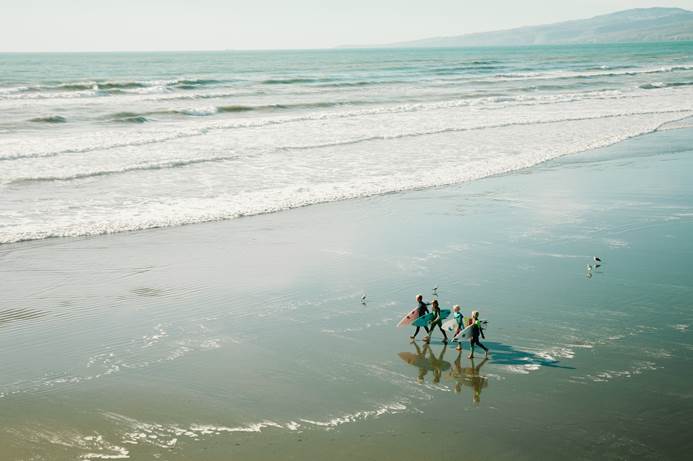Life Insurance
Lump sum payment if you were to pass away or are diagnosed with a terminal illness.
AIA Vitality NZ - 5 min read
10 June 2020
It’s been a testing few months, for all New Zealanders. But as we emerge from lockdown, there’s no rush to go back to our old lives. Just ask AIA Vitality Ambassador, Dr. Jaime Lee, medical doctor, and performance and health expert.

As New Zealand emerges from a couple of months of isolation, hibernation and reflection - many will find themselves feeling positive about it. Relieved, even. Like a huge invisible rock has been lifted from our shoulders.
But for others, particularly those who may have actually taken to isolation and the global slowing-down of life quite well, the thought of this re-emergence may actually be a trigger for anxiety. In some cases, perhaps even dread.
This experience reminds me of a time I went on a silent retreat. I was in there for 12 days of pure silence. I hadn't spoken to a single person; I'd barely even moved my body. I came out of it, and everything just seemed too much. I felt like a hermit coming out of a cave, and I think where we are now is very similar to that - and we're seeing, in real-time, that everyone needs to emerge from that cave at their own pace.
There is no reason for us to rush back out into the world and pick up our lives where we left off, and there is no need to feel any pressure to immediately return to your old habits either.
What's important, I think, is to use this pause as an opportunity to reflect on how you can live your life now, in this new world - and don't be mistaken, it is a new world - in a way that is more in-tune with who you are.
It's about noticing. Noticing what's been working for you, and what hasn't. It's about learning how to give someone a meaningful "no", or a meaningful "yes". When we're invited to social events, we often feel pressure to say yes; to go along with the crowd. We can feel as though unless we have a good and valid excuse, that we're obligated to go.
But you are allowed to say "no" simply because you would rather spend the time alone, or by doing something different. You are allowed to say "no" because the social event in question doesn't fit with how you like to socialise - perhaps there'll be too many people, it'll be too crowded, too hot, too noisy, or you're just too tired. You can say no, without feeling guilt.
By the same token, when you say "yes", try and do it fully. Say "yes" because you mean it, and because you want to go, and you want to be a part of this occasion. Say "yes" because it aligns with who you are, where you want to be, and how you want to feel.
There's no disputing the importance of inter-personal connection when it comes to our mental health. So in our personal lives, we might now be re-thinking how we connect with others.
Maybe we've realised that we don't actually like busy pubs or super noisy cafes, and instead we'd rather head into nature and go for a walk with our friends, or even just sit in the park - in a big, open space - instead.
Our professional lives are a little trickier, because we often can't exert as much control over them as our personal lives. But if you've found that you've enjoyed working from home, and like your productivity has increased, and your mental health has improved - then have that conversation with your boss.
Tell them what you discovered during this time, and there's a good chance that they might be supportive. Maybe you just want to work from home once a week, or maybe four days a week - now's the ideal time to have those conversations.
If you enjoyed walks in the middle of your day during isolation, do them even if you have to go back to the office. If it was cooking for yourself at lunchtime, take home-cooked meals into the office with you. Find those things that you enjoyed and take them into this new world with you.
In yoga, when you've finished your flow you don't just jump up and carry on with your day. You'll come out of your resting pose in your own time. You might blink slowly, and let the light gradually come in. You'll stretch, and let all of your senses come slowly back to life. You'll wiggle your fingers, your toes.
We'd be wise to take that same approach now: just slowly emerging from where we've been, seeing how we feel, what we think and who we are now. And if we feel we do too much, too soon, we can always retreat back into that cave. We can emerge, go back, and re-emerge, and take our time with it. There's no rush.
Disclaimer:
The information in this article is general information only and is not intended as financial, medical, health, nutritional, tax or other advice. It does not take into account any individual’s personal situation or needs. You should consider obtaining professional advice from a financial adviser and/or tax specialist, or medical or health practitioner, in relation to your own circumstances and before acting on this information.